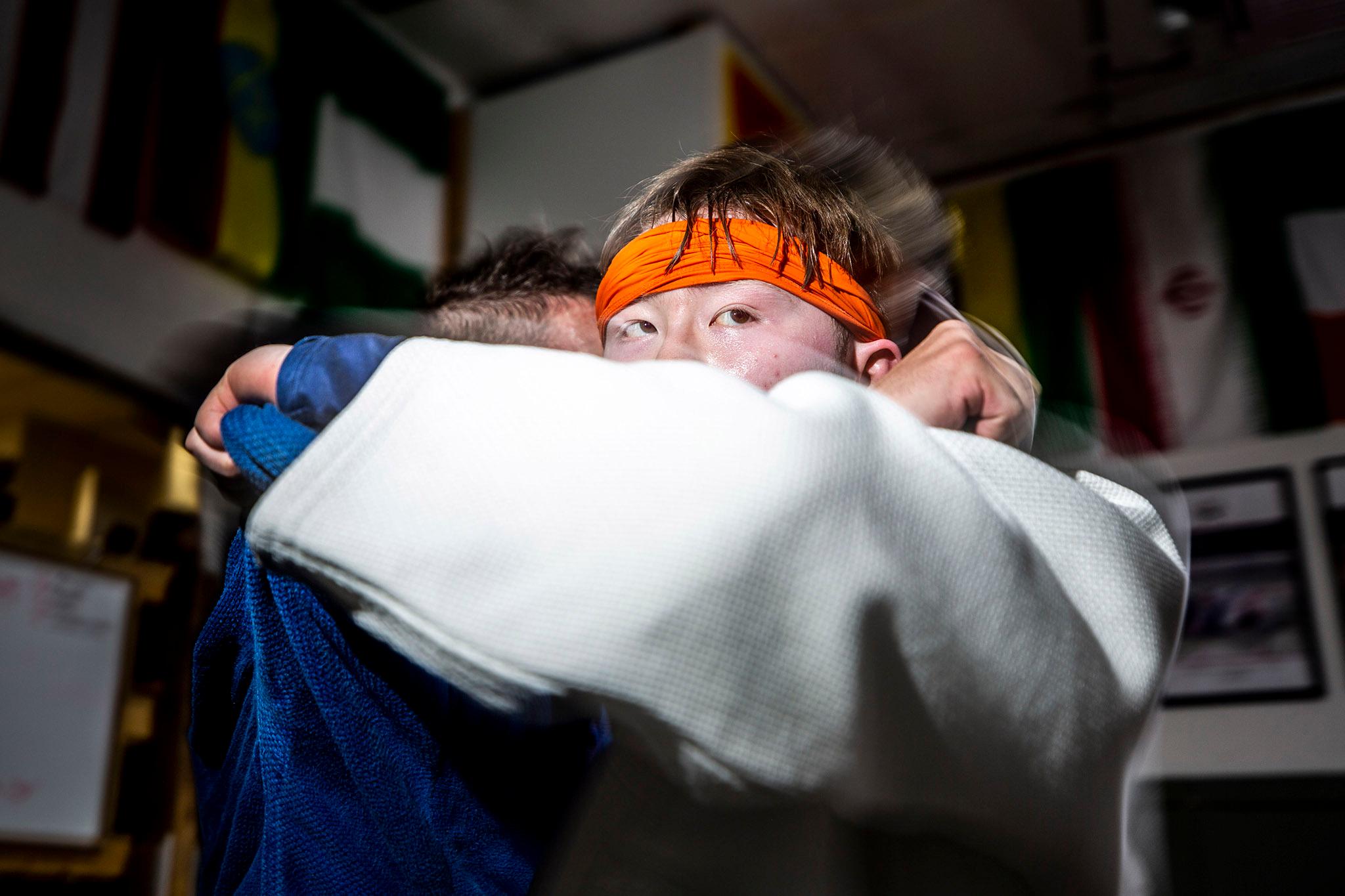Competing in the Paralympics has been Robert Tanaka's goal since he was five years old.
That's when he remembers three-time paralympian Scott Moore visiting his class at the Anchor Center for Blind Children in Denver to talk about the sport. Moore and Tanaka both have albinism, a genetic condition that causes visual impairment.
And for Tanaka, meeting an elite athlete "having the same disability myself, you know, that was something that I wanted to do."
Now, 16 years later, Moore and Tanaka are headed to Tokyo together at the end of August: Moore as the coach of the U.S. Paralympic judo team, and Tanaka as one of its four members.
"I don't know if the nerves will take over, but I like to think that I'll just be so excited to be honored to represent my country," said Tanaka as he imagined what it will be like to step on the mat in the same venue where judo made its Olympic debut nearly 50 years ago.
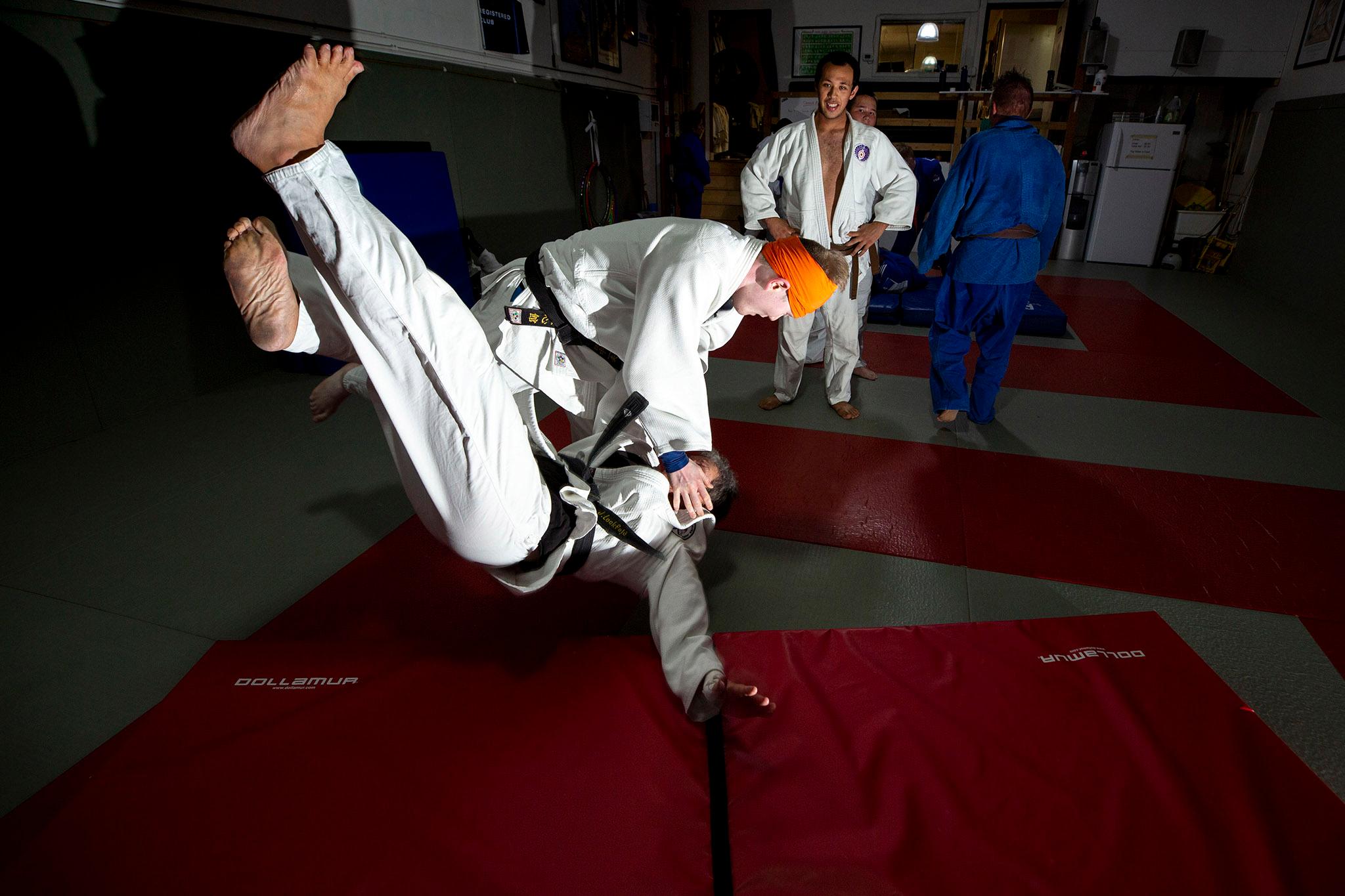
Tanaka has long been a familiar face in the tight-knit world of Colorado judo, even as he's started attending the international training camps and tournaments that come with being an elite player.
From a shy kid with quick feet and some killer moves, Tanaka has developed into a confident college student with, as Moore describes it, "clean classical" judo.
"It's pretty awesome, it's pretty exciting," said Moore. "You have no idea at five years old that he's going to be that good and he's going to make it. But we always talked about it and we always knew that was his goal."
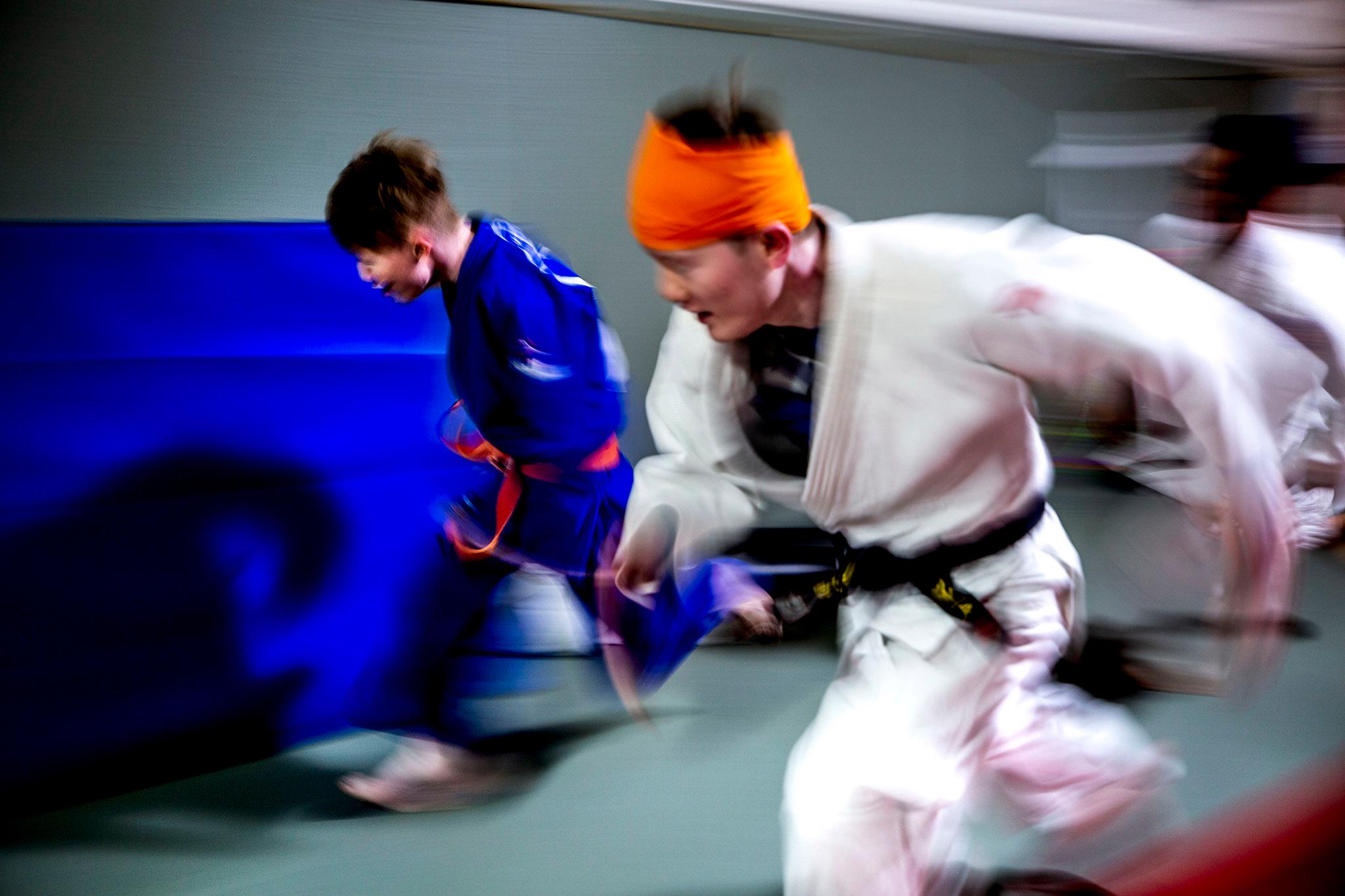
Denver judo punches above its weight - except there's no punching (or chops)!
Full disclosure: I've been a student at Moore's club for the past decade. It's a no-frills sort of place on the semi-industrial edge of Baker -- when we open the back doors to let in a bit of air, you can hear the light rail trains rushing up to the 10th and Osage RTD station. Scott and his wife Heidi, who is also a coach on the Paralympic team, have long attracted international-caliber visually impaired players.
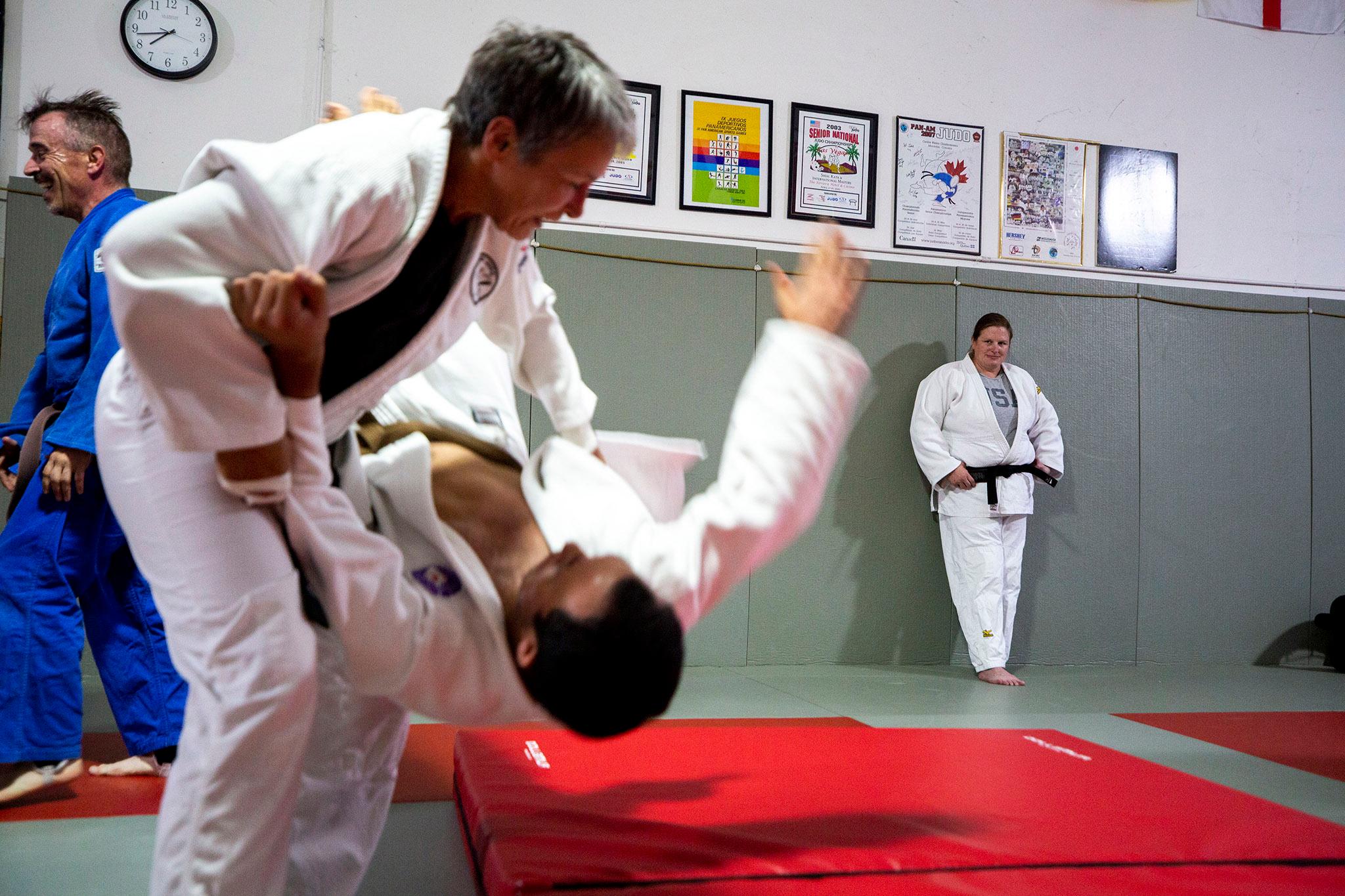
To the endless indignation of those of us who love it, judo, a martial art without a movie franchise, isn't the most well-known sport in the U.S. (although it's quite popular throughout much of the rest of the world).
If the word makes you think of Austin Powers shouting, "Judo chop!" let me set the record straight. There's no kicking or punching. Fighters spend most of the match clinched together, each trying to knock the other off their feet, through the air and onto their back. Once on the mat, it turns into wrestling, with chokes and joint locks tossed in for brutally good measure.
With your opponent almost always just at the end of your grip, the sport requires little modification for visually-impaired players. It's the only martial art on the paralympic roster.
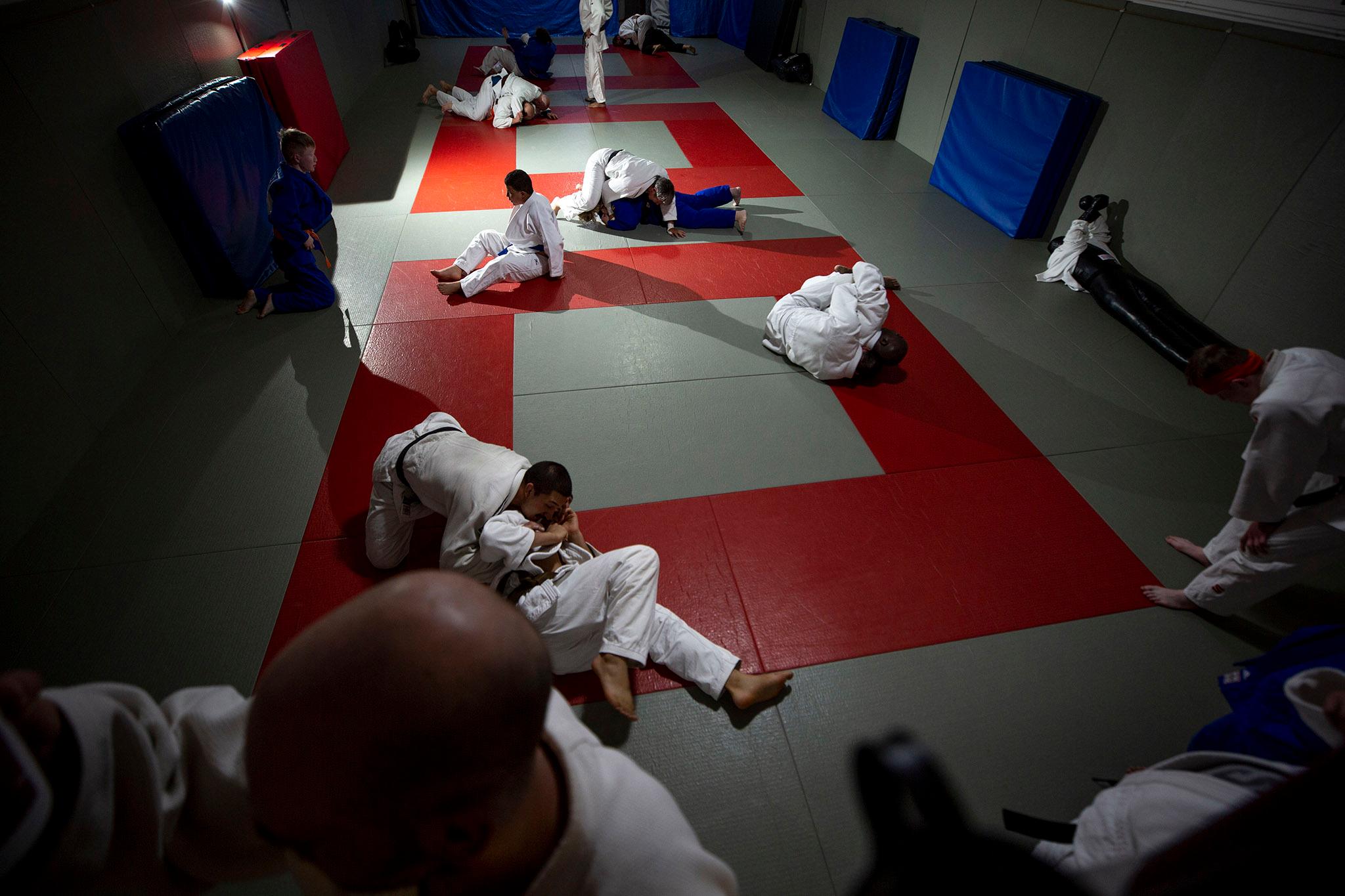
Paralympic players are classified by their level of visual impairment; Tanaka, a B3, is at the level of least impairment. The lack of pigment in his eyes makes him highly sensitive to light, and it doesn't take much distance for an object to become indistinct.
Currently, Tanaka and the other three members of the U.S. judo roster are in their final weeks of intense training, trying to sharpen their skills to their finest point without letting the stress push them too far.
"Finding that balance is pretty difficult, especially when you just want to do your very best," said Tanaka, who's currently recovering from a shoulder separation that has forced him to take things easier than he'd like. "You're just motivated to train all the time, but it's very important to find that balance and take a rest day."
In the spring of 2020, the spreading coronavirus roared across the world just as athletes were gearing up for the final qualifying events they were counting on to get them to Tokyo.
"It was pretty shocking," said team member Liana Mutia, who lives in Colorado Springs. "It just kept flip-flopping between there was going to be an Olympics, and there wasn't going to be, then there was going to be."
Still, it came as a shock when players learned that it would be delayed a year; suddenly, the finish line to years of intense training seemed to disappear over the horizon.
Like everything else, judo clubs had to close overnight; a sport built on invading your opponent's personal space doesn't adapt well to social distancing. Mutia spent the time training on mats in her garage. Tanaka led Zoom workouts for local judo martial artists trying to keep in shape in their basements and backyards.
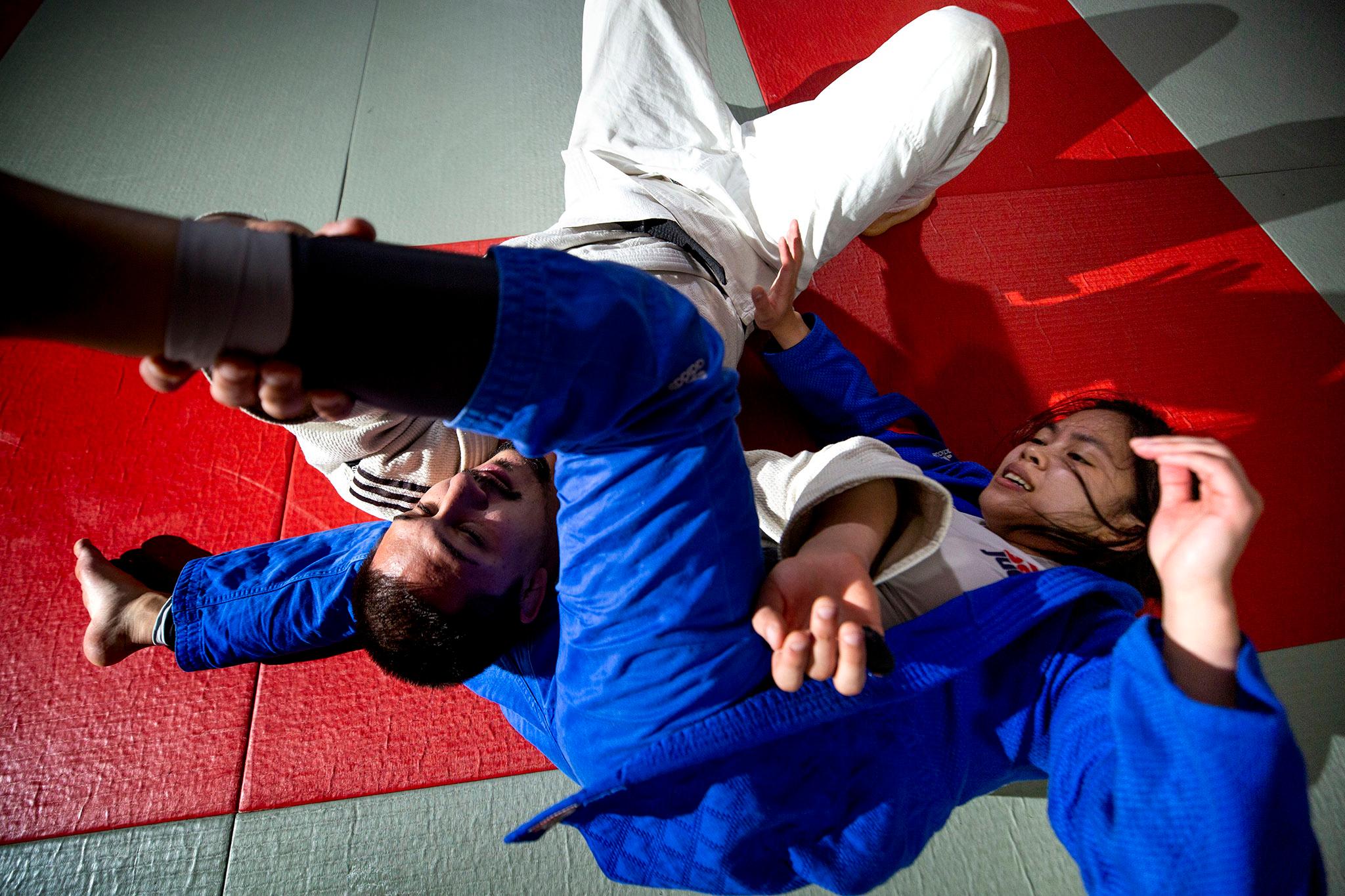
It was a tough delay in what was already a tough year. Tanaka was juggling a heavy training schedule with a full college course load. He was feeling burned out and beginning to wonder, after growing up in judo, whether he should even go on.
It "just was like work after work after work," he said. "You just want to quit, but you just gotta keep going. And I'm happy that both of my coaches and my parents kind of pushed me through that time. And we are where we are now. So I guess it worked out in the end."
These games are a homecoming for judo as a sport; it debuted as an Olympic event in 1964 in Tokyo.
This year's players are competing in the same indoor arena -- the Nippon Budokan -- where those first Olympians fought. And there's even a local connection; the 1964 team included Coloradan Ben Nighthorse Campbell, who went on to represent the state in Congress for almost two decades.
Tanaka is already imagining what it will be like to be there -- the nerves, but also the pride.
"Being Japanese American, I have that, you know, cultural aspect as well -- I'm in the country where judo was born and I'm representing my country, the USA. So both of that combined, I really feel like that kind of makes up who I am in a way."
It's hard to imagine a team leader with more experience than Moore; this will be his sixth trip to the Paralympics: three times as a competitor and three as a coach. Still, the resurgent pandemic means this one will be unlike any before.
He is hopeful the pageantry will go off undimmed; he wants Tanaka and his other young competitors to get to have that experience of taking the floor in the parade of nations.
"Walking through the tunnel ... with someone who's there for the first time, that look on their face when the crowd erupts," Moore said.
This time, of course, there will be no crowds; the stands will be nearly empty. But Tanaka knows that back home in Denver, the clubs he grew up training in will be watching and rooting for him.

